Profiles
-

Alec Nielsen


Stacy-Anne Morgan is a Scientist at Zymergen. She received her MSc. (2005) and Ph.D. (2010) degrees from the Department of Chemistry at the University of Toronto where her work focused on engineering photocontrolled DNA-binding proteins. From 2011 to 2016, she was a postdoctoral researcher in Dave Savage’s group at the University of California, Berkeley where she worked on developing genetically encoded fluorescent sensors for metabolites. She is interested in working to increase diversity in STEM fields.


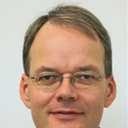

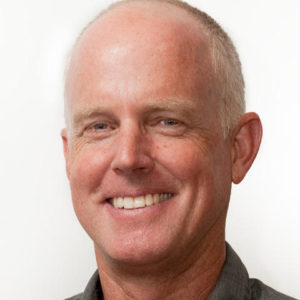
Michael Fero is a Co-Founder and CEO of TeselaGen Biotechnology Inc., a San Francisco based software company that has built Synthetic Evolution® – the AI driven operating system for synthetic biology. Michael received his Ph.D. in Physics from the University of California and contributed to the verification of the Standard Model at CERN and SLAC via the world’s most precise measurement of the Weinberg angle governing the coupling between the electromagnetic and weak interactions. Dr. Fero’s interest in biology led to a collaboration with Pat Brown and David Botstein at Stanford to build the world’s first human genome microarrays and do early research on expression level characterization of cancer cells. Dr. Fero then turned to systems biology where, in collaboration with Lucy Shapiro and Harley McAdams, he developed an automated high content diffraction limited microscopic screen of triply fluorescently tagged bacteria to better understand the bacterial cell cycle. Afterwards, Dr. Fero and two Stanford Shapiro/McAdams Lab colleagues started TeselaGen Biotechnology as a way to accelerate synthetic biology and the bio-based economy. Seeing a big deficiency in biologists’ ability to create what they imagine, TeselaGen focuses on making the mind to molecule process easier and faster with an AI driven, cloud-based enterprise platform for synthetic biology.
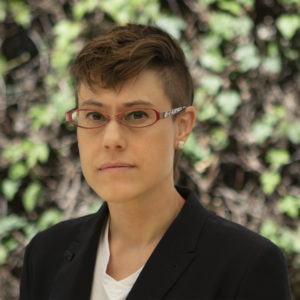
Carrie Cizauskas holds a veterinary degree (DVM) from Cornell and a PhD in disease ecology from the University of California Berkeley. Carrie started doing research as an undergraduate at the University of Wisconsin, Madison, completing a senior honors thesis on the immunology of malaria and earning the College of Letters and Science Dean’s Prize. Their veterinary work focused on wildlife and population medicine, leading to NIH EEID-supported graduate research in the Wayne Getz lab in the Department of Environmental Sciences, Policy, and Management at Berkeley on the ecological immunology and physiology of environmentally-transmitted coinfections in wildlife. Carrie did a Grand Challenges-supported postdoctoral fellowship at Princeton with Andy Dobson and Andrea Graham, researching interactions between the gut microbiome and macroparasites in wild non-human primates, and examining issues of infectious disease eradication and conservation. Carrie then made the leap from academia to industry, and now works as the Manager of Publishing and Academic Relations at Zymergen. As such, they work across the company to determine how to analyze data from interdisciplinary projects and publish on research involving microbiology, molecular biology, chemistry, data science, machine learning, and automation.
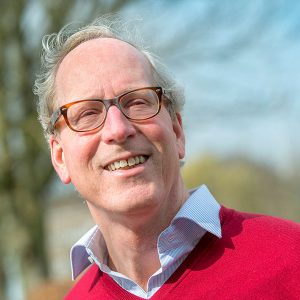
I am currently working on natural product discovery programs, yeast strains and enzymes that can convert agricultural residues into bioethanol and various microbial cell factory programs for more sustainable production of enzymes, biochemicals and natural products, such as antibiotics. Another aspect is the development of both traditional evolution and bioinformatics methods for fast screening and safe engineering of desired microbial cell factories. At the University of Groningen in the Netherlands, my projects focus on the development of new cell engineering methods for filamentous fungi, to accelerate the discovery of natural products for – among other things – new antibiotics.The aspect of my work that excites and inspires me the most is that Biotechnology can contribute in many ways to the big global societal challenges, as outlined by the UN Sustainable Development Goals, by addressing key technical challenges and that DSM is in the position to make a real contribution. The fast developments in the Biological Sciences are both a constant challenge and a source of inspiration, especially the increasing knowledge and technologies to characterize, understand and deploy microbial life. Another source of inspiration is the necessity to do so in a responsible manner, which requires good education, relevant stakeholder networks, clear communication and continuous learning.

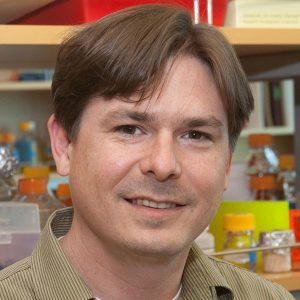
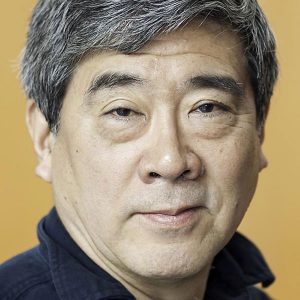
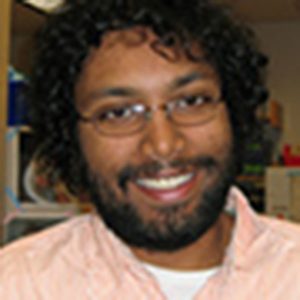
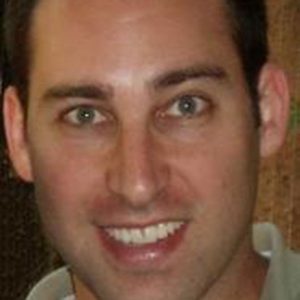
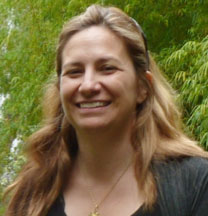
Angela is currently the Administrator at EBRC, managing event planning, administration, and program support. Prior to her role at EBRC, Angela was an Administrator at an international auction house specializing in antiques. A native of the bay area, she received her bachelors in International Relations from the University of California Davis and Masters of Business Administration at Golden Gate University.
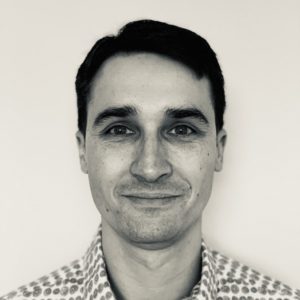
Douglas Friedman is CEO of BioMADE, the Bioindustrial Manufacturing Innovation Institute. In founding BioMADE, Doug seeks to secure the growth of the U.S. industrial biomanufacturing ecosystem and advance the bioeconomy. He is also President of the Engineering Biology Research Consortium (EBRC), a nonprofit membership organization focused on advancing precompetitive technologies in a safe, secure, sustainable, and ethical manor. At EBRC, Doug focuses on strategic initiatives, serves on the board and key leadership groups, and mentors science policy postdoctoral fellows. He was the inaugural Executive Director of EBRC from 2016 to 2021.
His primary scientific and technical interests lie in the fields of synthetic biology, biomanufacturing, and modern biotechnology. Doug’s policy interests include development of sustainable biotechnology, safeguarding the bioeconomy, and accelerating technical advancement by building diverse, robust community partnerships. He regularly serves as a subject matter expert on emerging biotechnologies, biotechnology policy, and national security topics at the interface of the biological and chemical sciences. Doug participates in more than a dozen external scientific and policy committees and boards.
Prior to his role at EBRC, Doug was a study director and senior program officer with the Board on Chemical Sciences and Technology at the National Academies of Sciences, Engineering, and Medicine. His primary portfolio focused on the advancement of science and engineering at the interface of chemistry and biology, often as they related to national security.
Earlier in his career, Doug performed research in physical organic chemistry and chemical biology in academia and industry. He earned a Ph.D. in Chemistry from Northwestern University and a B.S. in Chemical Biology from the University of California, Berkeley.
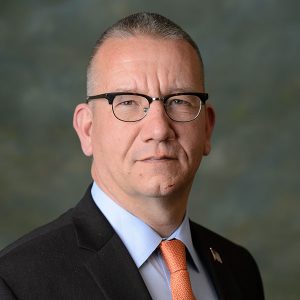
J. L. “Clem” Fortman is a synthetic biologist with a long standing interest in biodefense. He is currently a staff member at the EBRC, and was formerly a technical analyst for synthetic biology with ANSER providing support to the Office of the Deputy Assistant Secretary of Defense for Chemical and Biological Defense, where he previously served two years as an American Association for the Advancement of Science (AAAS) Science and Technology Policy Fellow. He is also a former Fellow with the Emerging Leader in Biosecurity Initiative at the Johns Hopkins Bloomberg School of Public Health Center for Health Security. Clem is a classically trained microbial physiologist with a PhD in microbiology from the University of Minnesota. He spent 6 years as a postdoc in the University of California, Berkeley (UCB) Department of Chemical Engineering where he gained his expertise in synthetic biology. He is a founder of the introductory College-Level Experience in Microbiology (iCLEM) program at UCB, an educational outreach program for under resourced high school students, as well as Lygos, a San Francisco Bay area synthetic biology company. His career in biodefense was stimulated by his time as an enlisted man in the US Army where he served in a number of different roles including assistant Nuclear, Biological, and Chemical Non-Commissioned Officer for the Headquarters and Service Battery of the 1st Battalion 319th Airborne Field Artillery Regiment.
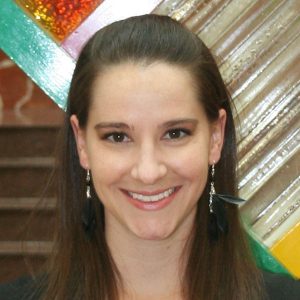
Emily Aurand is the Senior Director for Roadmapping and Education at the Engineering Biology Research Consortium. She has been with EBRC since 2018, serving as the staff lead for both the Roadmapping and Education Focus Areas. Emily is the Executive Editor of EBRC’s technical research roadmaps, and has led the production and release of all six EBRC technical roadmaps to-date, available through https://roadmap.ebrc.org. She directs roadmap design and development, manages large teams of academic, industry, government and other stakeholder contributors, leads and oversees workshop development and facilitation, and is responsible for production and execution of roadmap publications.
Emily also serves as an expert on engineering biology and biotechnology education and workforce development, engaging with the U.S. government, organizations such as the National Academies of Science, Engineering, and Medicine, and international collaborators on the education and training of the next-generation bioeconomy workforce. Emily created and led the EBRC Industry Internship Program and produces public engagement and outreach activities and materials through the EBRsee initiative. Emily supervises and mentors the EBRC science policy postdocs and research assistant and supports the Student & Postdoc Association.
Emily also leads the EBRC Industry & Organizational Member Advisory Committee and leads science policy communications, develops and manages funding and grant support, and oversees and manages the EBRC websites.
Prior to coming to EBRC, Emily was an American Association for the Advancement of Science (AAAS) Science & Technology Policy Fellow at the National Science Foundation. At NSF her work in the Division of Chemical, Bioengineering, Environmental, and Transport Systems (CBET) included evaluation and assessment of the Synthetic Biology and Biomanufacturing portfolios, collaboration on the strategic reorganization of CBET programmatic concentrations, and development and implementation of novel funding initiatives, in addition to serving as a subject matter expert (a biologist amongst engineers). During her AAAS fellowship, Emily also served as a co-chair of the Fellows’ Science Diplomacy Affinity Group, which explores how science and technology cooperation can be used as a tool for diplomacy.
Emily received a B.S. in Biomedical Sciences from Colorado State University and a Ph.D. in Neuroscience from the University of Colorado. She continued her academic training in Trieste, Italy with a neuroengineering post-doctoral fellowship at the International School for Advanced Studies (SISSA). Her scientific research experience spans the fields of developmental neurobiology, biomaterial development, and neural tissue engineering and biocompatibility.
Emily is a United States Figure Skating Double Gold Medalist and the proud Auntie to adorable toddler Jack. In her free time, she likes to relax by practicing yoga, dance in her kitchen while she cooks, and snuggle with her elderly cats (who make frequent appearances in EBRC virtual events). When she’s not traveling to convene with EBRC members and stakeholders, Emily lives and works in Colorado.
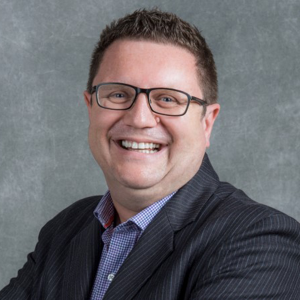
Dr. Mouncey joined the DOE Joint Genome Institute in 2017 as the fourth Director in its 20-year history. After stints as a senior research scientist in molecular biology at Roche Vitamins, Inc. in New Jersey and DSM Nutritional Products in Switzerland, he joined Dow AgroSciences in Indianapolis in 2008 and served as Bioengineering and Bioprocessing R&D Director and Leader from 2011 onward. There, Mouncey directed a 70-member R&D team that supported the growth of a highly successful natural product insecticide that has since generated hundreds of millions of dollars of revenue and significant societal benefit, through isolating, optimizing, and scaling-up of new production strains for commercial manufacturing by fermentation. He also built an integrated and highly effective bioprocessing team comprising high-throughput screening, metabolic engineering, engineering biology, systems biology, enzymology, protein expression, fermentation and analytical capabilities. His team also developed production strains and fermentation processes for other molecules such as a new fungicide, propionic acid and long-chain alcohols, as well as supporting the discovery of new crop traits.